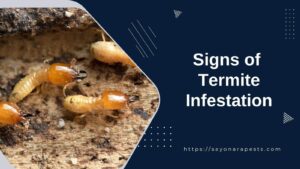Have you ever had a close encounter with a squirrel that ended with a nip on the finger? If so, you’re not alone.
Contrary to popular belief, squirrels are not generally prone to biting humans.
But certain circumstances may cause these ordinarily docile creatures to lash out.
In this blog post, we’ll explore what causes squirrels to bite and what you can do to prevent it from happening.
First, let’s discuss the squirrel bite.
Self-Defence
Self-defence is perhaps the most common reason for a squirrel to bite.
If a squirrel feels threatened or cornered, it may lash out to escape the situation.
This is particularly true if a mother squirrel feels her babies are in danger. Or because the person is coming too close to the squirrel’s nest or babies.
It could also be because the person is trying to catch or kill the squirrel. If a squirrel feels like it is in danger, it might bite as a way to defend itself.
Homeowners should be especially cautious of approaching mother squirrels, as they are more likely to bite to protect their young.
Injured
Another reason a squirrel might bite is if it is sick or injured.
If a squirrel has an infection or disease, it might be more likely to bite because it feels pain or is not in its right mind.
Injured squirrels might also bite because they fear they will be hurt more.
Be careful around injured or sick animals, as they might be more likely to lash out.
Territorial creatures
Squirrels are also known to be territorial creatures.
If a squirrel feels that its territory is being invaded, it may become aggressive to ward off the intruder.
This behavior is most commonly seen during the mating season when male squirrels compete for females.
However, it can also occur if a squirrel perceives a human as a threat to its food source.
For example, if you regularly feed birds in your backyard, the squirrel may view you as competition for the birdseed and become aggressive.
Malnutrition
The third reason why squirrels may bite is malnutrition.
A lack of food can cause animals to act out unexpectedly, and biting is one of them.
This is particularly true of baby squirrels, who rely heavily on their mother’s milk for nourishment.
If the mother does not have enough food or milk to go around, the baby squirrels may become malnourished and lash out to get more food.
Although Squirrel bites are not particularly common, certain circumstances may cause these ordinarily docile creatures to lash out.
By understanding what causes squirrels to bite, you can take steps to prevent it from happening.
How serious are squirrel bites?
Despite their small size, squirrel bites can be severe. While most squirrel bites will not result in
Rabies, there is still a risk of infection.
Any time an animal’s teeth break the skin, bacteria can enter the body and cause an infection.
If you suspect that a squirrel has bitten you, it is essential to clean the wound thoroughly with soap and water and seek medical attention immediately.
Can Squirrel Bites Cause Rabies?
The short answer is yes.
While squirrels are not as common carriers of rabies as some other animals, they can still contract the virus you are bitten by a squirrel acting strangely or appear to be sick, there is a chance that it could have rabies.
It is essential to seek medical attention immediately if you believe you have been exposed to rabies.
How can I prevent being bitten by a squirrel?
There are several things you can do to prevent being bitten by a squirrel
Avoid approaching wild animals
First, avoid approaching or handling wild animals, especially if they appear sick or injured.
If you must handle a squirrel, use gloves or other protective clothing to avoid direct contact with its fur or skin.
Do not feed squirrels.
Second, do not feed squirrels. While offering food to these cute creatures may be tempting, doing so can encourage them to approach humans and become accustomed to being fed.
This increases the chances of a bite occurring.
Keep your distance
Finally, keep your distance if you see a squirrel in your yard or elsewhere. If the squirrel feels threatened, it may bite in self-defence.
By understanding the reasons why squirrels might bite and taking steps to avoid contact with these animals, you can decrease your chances of being bitten.
What Does a Squirrel Bite Look Like?
A squirrel bite is typically tiny and puncture-like.
The wound may not bleed much, but it will be painful.
If the bite is on your hand or finger, you may notice that the area around the wound starts to swell and turn red.
In some cases, a squirrel bite can become infected. If this happens, you’ll need to see a doctor as soon as possible so that they can prescribe antibiotics.
What to do if you get bitten by a squirrel?
Contain the animal
If possible, gently capture the animal in a container so it can be tested for Rabies.
Once the animal has been contained, call your local animal control or police department for assistance.
Wash the wound
First and foremost, wash the wound with soap and water for at least five minutes.
This will help to remove any dirt or bacteria that may be on the wound.
Apply bandage
Next, apply a bandage to the wound.
If the bleeding is constant, it’s essential to seek medical attention immediately.
If you are not sure if the wound is severe, there are a few things you can look for.
For example, check to see if the wound is more than ½ inch deep or if it is spurting blood.
If either of these things is true, then you need to go to the hospital right away.
Check the wound every now and then.
It’s also important to keep an eye on the wound for the next few days.
If it starts to swell or is extremely painful, you should also seek medical attention.
In most cases, however, squirrel bites are not severe and will heal on their own within a week or two.
Do You Need Rabies Shot After Squirrel Bite?
The chances of getting rabies from a squirrel bite are very low.
However, if the squirrel is acting strangely or appears to be sick, there is a chance that it could have rabies.
If you believe you have been exposed to rabies, it is essential to seek medical attention immediately and get a Rabies shot.
What Diseases Can Squirrels Transmit to Humans?
1. Rabies
Rabies is a disease caused by a virus that affects the nervous system.
Rabies is transmitted through saliva, so if a squirrel with rabies bites you, you could get the disease.
The symptoms of rabies include fever, headache, muscle weakness, and seizures.
If you think you’ve been exposed to rabies, seek medical attention immediately.
2. Leptospirosis
Leptospirosis is a bacterial infection that affects both animals and humans.
It’s transmitted through contact with contaminated water or soil.
Symptoms of leptospirosis in humans include fever, headache, chills, vomiting, and muscle aches.
If left untreated, leptospirosis can lead to kidney damage or even death.
Leptospirosis is treated with antibiotics, and patients typically recover within a week or two.
Avoiding contact with contaminated water or soil is the best way to prevent leptospirosis.
3. Salmonella
Salmonella is a bacterial infection usually transmitted through contaminated food or water.
Symptoms of salmonella infection include diarrhea, vomiting, and fever.
Salmonella can sometimes lead to more severe complications like blood poisoning or death.
These symptoms usually appear within 12-72 hours of exposure to the bacteria and can last for four to seven days. Salmonellosis is usually treated with antibiotics.
The best way to prevent salmonellosis is to avoid contact with wild animals and wash your hands thoroughly after coming into contact with them.
4. Tularemia
Tularemia is a bacterial infection that affects both animals and humans.
It’s transmitted through contact with infected animal tissue or bites from insects like fleas or ticks.
The bacterium Francisella tularensis cause it, and symptoms include fever, skin ulcers, swollen lymph nodes, chills, headaches, body aches, and chest pain.
Tularemia is treated with antibiotics, and patients typically recover within a week or two.
The best way to prevent tularemia is to avoid handling sick or dead animals and to wear gloves when handling animal carcasses.
In some cases, tularemia can lead to pneumonia or even death.
Bites and scratches from squirrels can transmit some diseases to humans, including rabies, leptospirosis, salmonellosis, and tularemia.
While most of these infections are treatable with antibiotics, it is vital to seek medical attention as soon as possible if you think you may have been exposed to them.
In addition, it is essential to take precautions when coming into contact with wild animals to reduce the risk of infection.
There you have it! Now you know what diseases squirrels can transmit to humans and how to prevent them. Stay safe out there!











